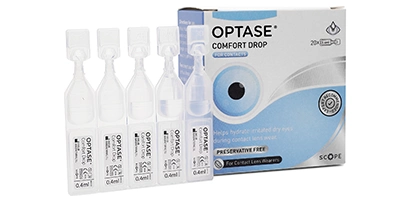Glaucoma is a group of eye problems that harm the optic nerve. Inside your eye, there's a fluid called aqueous humour. Your eye constantly makes this fluid, and extra fluid goes out through tubes. The optic nerve links your eye to your brain. If the fluid doesn't drain properly, it builds up and increases the pressure inside your eye. This damages the optic nerve over time, and if not treated early, it can lead to vision loss.
The condition often runs in families, meaning if your relatives have it, you might be more likely to get it too. Glaucoma is also more common as you get older and may not show up until later in life. People of African, Caribbean, or Asian origin have a higher risk. If you have other eye issues or medical conditions like diabetes, you might also be at risk. Glaucoma can affect one or both eyes, sometimes more severely in one than the other.

 Offers
Offers Account
Account
 Favorite
Favorite
 Basket
Basket

 OFFERS
OFFERS

















